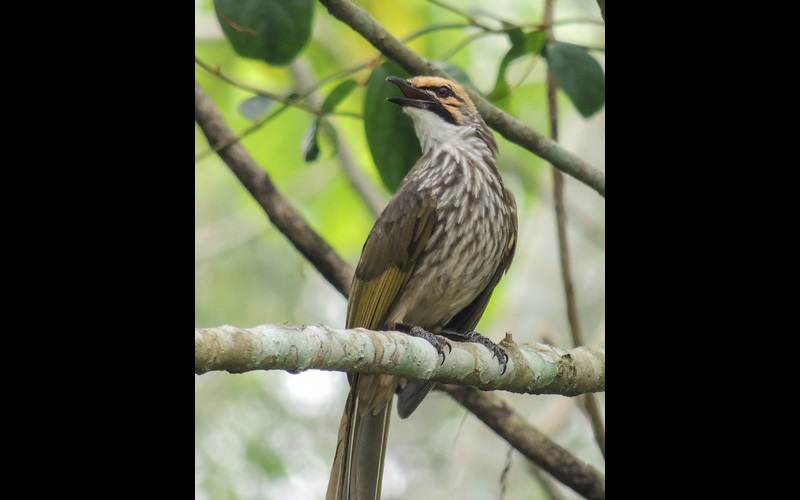 Straw-headed bulbul – credit Michael MK Khor CC 2.0. Flickr
Straw-headed bulbul – credit Michael MK Khor CC 2.0. FlickrFrom the sprawling urban city-state of Singapore comes the unlikely story of a critically endangered songbird and a dedicated group of environmentalists helping it thrive as the population collapses overseas.
The straw-headed bulbul is a victim of its beautiful song, which has seen it extirpated from the wilds of Thailand, Myanmar, and Java as poachers capture it for the illegal songbird trade.
But as early as 1990, conservationists, birdwatchers, and government workers in Singapore have taken action on this species’ behalf.
“Whenever I hear its resonant, bubbly song, the forest seems to erupt with life,” conservationist Ho Hua Chew told Smithsonian Magazine.
Because of men like Ho, the peripheral wetlands of Singapore, the offshore island of Pulau Ubin, and the large green spaces in the city state’s interior together play host to 600 straw-headed bulbuls.
Nature Society Singapore, of which Ho was a member, was the first to push for nature protections on Pulau Ubin, the site of an old granite quarry, where nevertheless a concentrated population of these birds could be found.
This resulted in a Nature Area designation for the island in 1993, achieved through advocacy and outreach among millions of Singaporeans.
Smithsonian lists this as an early victory in the history of environmentalism on the cramped peninsular city-state.
After populations had fallen 50% over three generations, the bird was listed as “Endangered” on Singapore’s own Red Data Book, which tracks populations of every plant and animal in the country, the straw-headed bulbul was added to the Endangered Species (Import and Export) Act of 2006, a move which reversed the trend, even while populations were collapsing around Southeast Asia.
Today, there is a Straw-Headed Bulbul Working Group, co-led by the National Parks Board and the Nature Society Singapore, which ensures this beautiful warbling bird remains in tip-top condition.
If it were not for the incredible momentum that the work to conserve this bird has had over the years, its future would be alarmingly uncertain. Today, Ho believes that as the Working Group ensures the genetic diversity among the birds is in good shape, and the populations are increasing, the Singaporean straw-headed bulbuls may one day be the only population to draw from to restore populations elsewhere. How Singapore Became an Unexpected Stronghold for a Critically Endangered Bird:
2024-04-05T14:29:00+05:30
